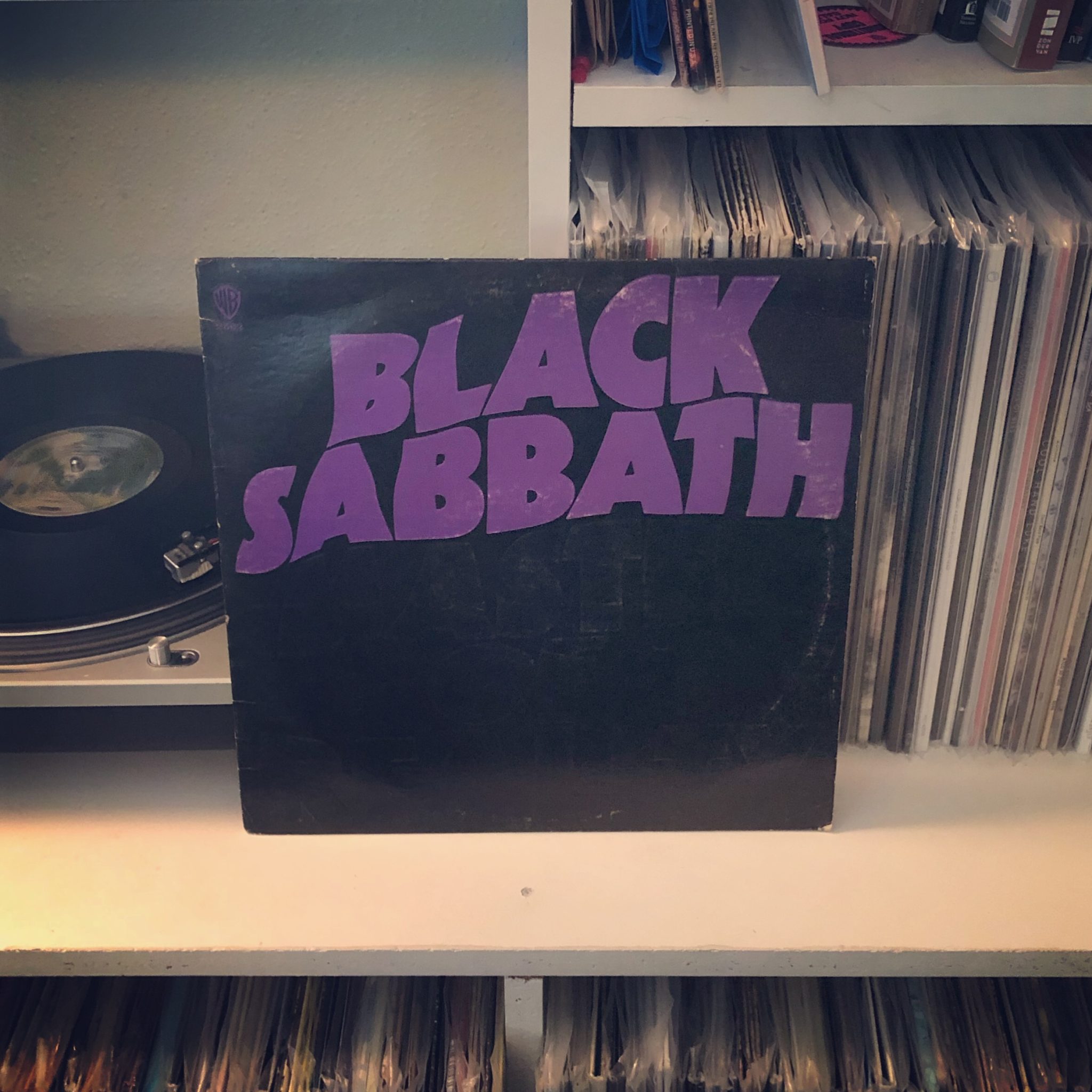
For my great love of metal bands that are often described as “Black Sabbath worship” (see: Pallbearer, Elder, Baroness, Isis), I’ve never dug too deep into Black Sabbath themselves beyond some superficial listens to Paranoid.
But on a recent trip to the record store, I decided to change that. Trying to decide between this record and Vol. 4, I pulled up an article that called this record the “ultra-heavy” foundation of doom, sludge, and stoner metal.
I just wasn’t expecting so much overt Christianity.
Finally listening to it myself, I can see that its legacy is well-deserved. On a few tracks, Tony Iommi tuned his guitar down to C# standard, and bassist Geezer Butler followed, which offered a darker, heavier tone than anyone had ever heard before (note: downtuning was originally an accommodation for his injured fingers).
The riffs are still huge by today’s standards. Nearly every doom band in the world is still trying to write riffs as heavy and menacing as “Lord Of This World,” “Into the Void,” or “Children of the Grave.” “Sweet Leaf” out-drugs Paranoid’s drug epic, “Fairies Wear Boots,” and remains the blueprint for most stoner metal bands (what has Sleep done besides play this song longer, slower, and louder?).
While Tony’s riffs and Ozzy’s unmistakable wail get most of the press for this album, Geezer and drummer Bill Ward steal the spotlight on a number of occasions. Without a second guitarist for Tony to play off of, Geezer often breaks from his effortless grooves to run up the neck to trade lead lines. While Bill spends most of this album playing plodding, heavy beats, his brilliant chops steal the show a few times—most notably on the relentless beat of “Children of the Grave.”
It’s not all doom and gloom here though. There are a few surprises, such as the gorgeous ballad “Solitude,” which also features Tony on flute and piano. But perhaps nothing is more surprising than “After Forever,” a fierce affirmation of Geezer Butler’s…(reads writing) faith in Jesus Christ? When I first heard the lyrics, I had to read through the liner notes to see if they were being sarcastic. After hearing my whole life about how Black Sabbath (and Ozzy in particular [and heavy metal as a whole]) were evil, I feel pretty vindicated.
Larry Norman once asked, “Why should the Devil have all the good music?” Sabbath would say he doesn’t. For all the Satanic Panic, Black Sabbath never tried to hide their faith. “Lord Of This World” is polemic against Satanism. Even “War Pigs,” the quintessential Sabbath song, draws heavily on biblical themes and invokes God’s justice against the war lords exploiting the innocent. They might have loved drugs, but that didn’t get in the way of Geezer Butler’s love for God.
Overall, there’s absolutely no mistaking how historically significant Master Of Reality is. But nearly fifty years (that feels so weird to say) after its release, its influence on the course of heavy metal is still as strong as ever.